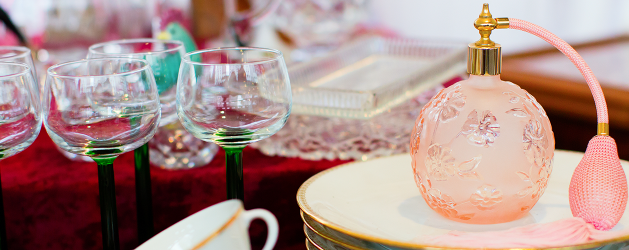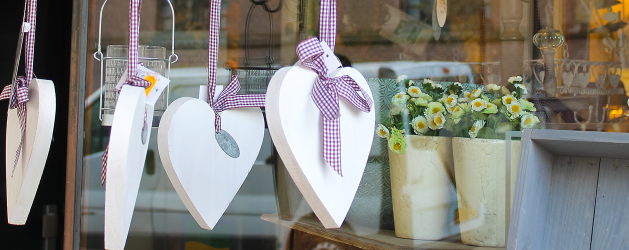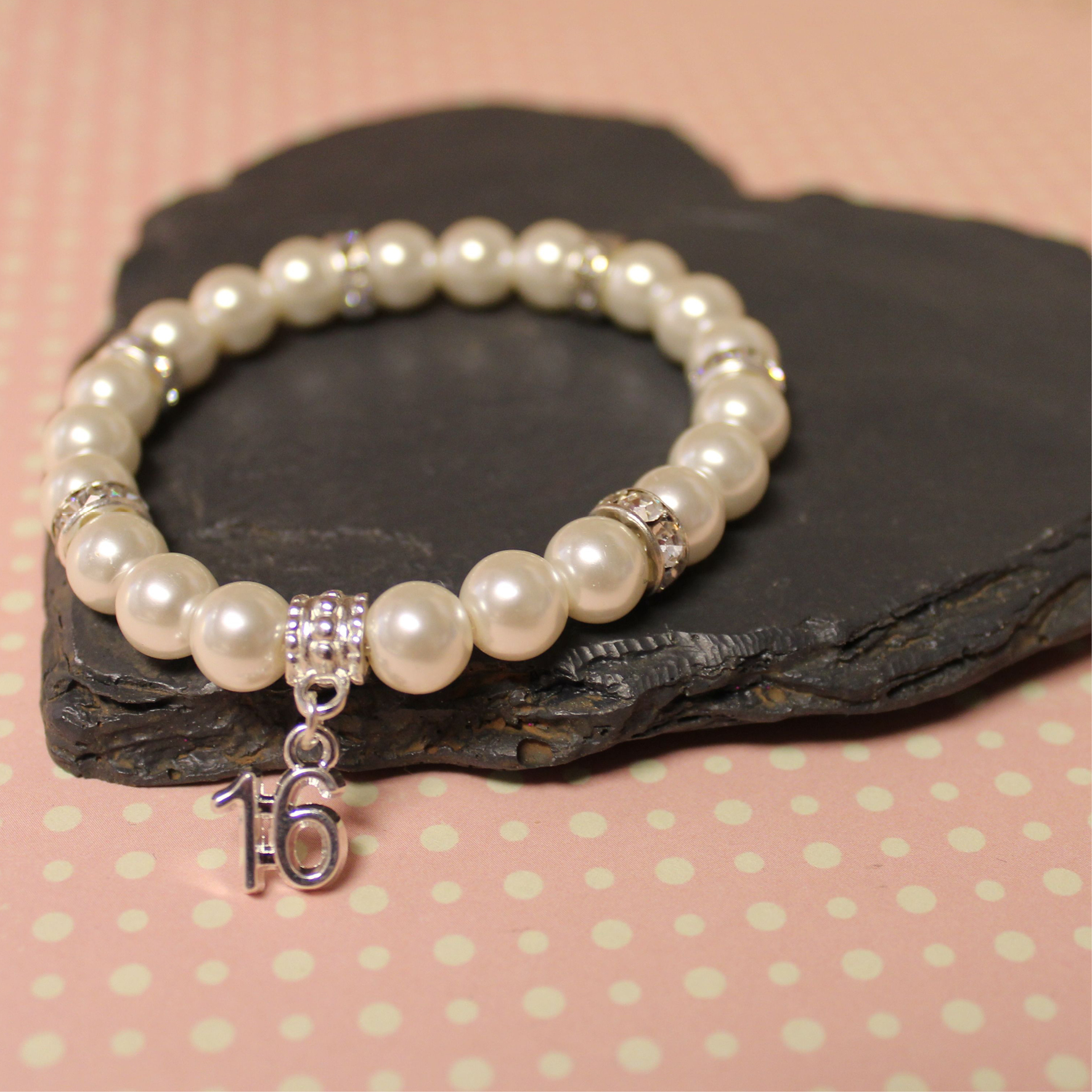Tips for attending a trade show - Buyers
Some of you Gift Shop owners or traders may have been going to Trade shows for years, if so then please add your own tips in the comments! We have complied some tips for Buyers attending their first or one of their first shows.
1. Wear or at lease take comfortable shoes! – You will literally walk for miles at a trade show and although heals give you a nice professional look we would recommend at least taking comfy shoes to change into.
2. Have a look at the attendees before hand – Before you go, its a really good idea to have a look thorough the list of attendees and see if any catch your eye. Check out their web sites and seek out the good ones, its really worth doing a bit of research to make the most of your visit.
Look through trade journals/magazines, they are fantastic for inspiration. They will often have lots of adverts in with photos of the stock and they include the stand number you can flick through the magazines and note down all the interesting looking suppliers.
3. Take a good backpack/bag – this is to carry any catalogues you pick up, I would recommend not taking any you really aren’t interested in, many stands will try to hand out catalogues to anyone that will take them while others want you email address/details before you part with them, they will usually follow up with a phone call or an email so try not to waste yours and their time.
4. Do not get caught up! – By this I mean some suppliers can be very persuasive, you simply do not want to get caught listening to a sales pitch of something you will not be interested in, be polite and just move on.
 5. Keep track of orders placed – This sounds obvious but when I go to a trade show I place orders with 10+ suppliers, you easily forget what you have ordered, I take a small notepad and list supplier name, date I’ve asked for it to be delivered and the amount – I always ask for the amount before agreeing to the order. It’s very easy to carried away on a stand, you can ask for a tot up during the order if you don’t want to overspend.
5. Keep track of orders placed – This sounds obvious but when I go to a trade show I place orders with 10+ suppliers, you easily forget what you have ordered, I take a small notepad and list supplier name, date I’ve asked for it to be delivered and the amount – I always ask for the amount before agreeing to the order. It’s very easy to carried away on a stand, you can ask for a tot up during the order if you don’t want to overspend.
6. Order at the show! – as much as you can, place orders at the show, even for the future, its so much better to place orders when you can see and touch what you are ordering and you will get genuine advice from the stand. Many stands will have very worthwhile deals at the show so it’s well worth trying to place an order there and then.There have been many orders I wish I had planned at the show, so I tend to just do it if I really like what I see. If you want to be a bit more cautious, make a not of their stand number and go back later on.
Gift Industry Tip: Finding A Supplier.

With the ever-increasing competition, today’s gift industry is becoming harder to stand out from the crowd. Keeping the customers happy with ‘New Products’, ‘Something a bit different’ and ‘A reasonably priced, different, beautiful, amazing’ gift, it’s getting harder!
Where would you go to keep finding those products? We tend to go to a few trade shows a year, usually the NEC Spring and Autumn fair and Pulse, this is purely timing and Geography. We love the shows and love meeting up and catching up with favourite suppliers and talking to other retailers but they do cost. We always do 2/3 days at the NEC and stay in a hotel. So as well as both taking 2/3 days out from the business you have the expenses to add on top. Don’t get me wrong we would never not go to the shows but we felt finding really good suppliers outside the show was actually quite hard, trawling through the internet.
The Idea for Gift Shop Wholesalers actually came at one of the shows, we felt we needed a really good online place where you could have it all laid out for you so basically you don’t miss out on potentially exciting products or suppliers.
We are building up our suppliers on GSW and hope you can find some new and exciting suppliers, do let us know if you have any suppliers that you feel would look great on our site!
Buying Wholesale - A beginners guide
When you have worked in retail for many years, you forget how it was when you first began, remembering back when wholesalers asked us to pay ‘pro forma’ we nodded while thinking ‘what actually is pro forma…?‘ we had been in completely different industries so why would we know! (it means pay up front by the way!)
When you are thinking about taking the plunge and buying wholesale, basically it means you are spending more money on a larger volume of goods to then resell on. You will benefit from large discounts, the larger the quantities you buy, the bigger discounts you get.
Some wholesalers start with a minimum spend of just £50 others ask you to spend £1000. It varies depending on the supplier (wholesaler). Quantities per item is another consideration, some suppliers let you buy just 1 of each item, others sell in 4’s 6’s 24’s or more. It’s not unreasonable to ask what quantity of each item do you have to buy.
When you first show interest in a supplier its very important to get clear on their terms, what are their likely delivery times, what is the carriage charge? Many suppliers will have a level of spend that is ‘carriage free’ this can be anything from £100 to £1000. Many of the smaller suppliers are happy to ship goods for a £300 order, (this would be called a ‘carriage free’ order. If you look at the suppliers on this Giftshop Wholesalers site we have the free shipping/carriage free amount. This becomes important as when buying for gift shops its much more financially viable to not pay ANY carriage. Note: Many companies will still send carriage free if they for example have out of stock items in your order but CHECK as you don’t want to drop below the amount and have to pay £10 extra.
Here are some points (and a recap) to consider when looking for wholesale suppliers:
- What are the individual product product quantities? (how many of each item do you have to buy). Some wholesalers sell in packs where you get a set number of each colour, make sure you like all the colours! They will not usually split packs.
- What are their delivery times? – How long do you have to wait until the products are shipped to you.
- When do you need to pay? – It is normal to place your order then the invoice will be sent to you via email or post and you will then pay. Some companies will ask you to pay over the phone. I would expect the delivery imminently once the payment has been made, reputable companies will not keep you waiting too long for goods unless previously agreed.
- What if items are missing or damaged? – This doesn’t happen too often but is unfortunate for both parties, most companies will give you a timescale to report missing or damaged items, make sure you report this as soon as possible and keep any damaged or faulty items, some companies like them back, others will tell you to dispose of them. Note : To keep up good relations we don’t report every single tiny item, if its just £1/£2 we just take the hit as we feel its not worth anyones time, but that is just how we work!
- What is the minimum spend/Carriage free amount? Most suppliers will have a ‘Minimum spend’ this is the minimum amount you have to spend to benefit from the wholesale prices, they also have the ‘carriage free’ amount. The minimum spend can be anything from £50 upwards, always check the carriage costs on the lower amounts as this becomes a cost you have to absorb.
I hope you have found this article useful, if you have any further questions please pop over to Twitter and give us a tweet!
How do smaller wholesalers get into shops?
Tips for getting into shops for smaller wholesalers
Wholesalers come in all shapes and sizes, from 1 person making things in their spare time to massive operations with warehouses and scores of people working to run them. Their goals are the same – to get into as many shops as possible and get their products out there.
We have a few tips for those small wholesalers who want to take the plunge and get their products into shops.
1. Be very clear on your target market/shops – your need to be very clear on who your target market is and the shops you are targeting meet that same market. You may have the most wonderful product but if it doesn’t fit into the shops you are targeting, it won’t work. Do your research, have a look round some different shops and get a feel where you think you products will fit. Be genuine, if you have a high priced product, there is no point trying shops that seller lower priced items and vice versa.
2. Be super clear on your pricing, your trade price and the recommended retail price – Different industries work on different margins, the gift industry works on anything from 2, (2.4 if taking into account VAT) to 3/4 times the trade price, you must bear this in mind. If you sell an item for £1 to a gift shop, they will have to be able to sell it for a minimum of £2.40. The shop owners will need to make this margin or it is not worth them stocking your item. They have a shop full of products making this margin, taking on lower margin products even if they are locally or handmade is not good business sense. When visiting a shop, you must have clear Trade and RRP prices, either a printed price list or be able to name the ‘trade’ and retail prices easily. Obviously there are going to be exceptions to this rule but this is a general guideline.
3. Have something to show! – Have a good selection of samples to show, you would be amazed how vague people can be, not having many things to show or even having nothing just explaining what they are! When visiting any shops take what you are selling with you or at least photos/catalogue.
4. Be genuine! – My advice when approaching a shop to try and sell you product, be as genuine and passionate as you can, be mindful of busy shops with lots of customers, immediately stand to the side when a customer is about. Politely ask the owner/manager if they would be interested in taking a look at your products. Don’t ever be offended if its a straight ‘no’, in some cases it really is their loss, other times you don’t know what the reason might be but if you believe in what you are offering it’s more often than not budget/not fitting into that particular shop etc. Don’t give up!
5. Have material to leave behind – Make sure you have something to leave behind with your products/contact details etc on, you never know! Shop owners/managers are very busy people, they make on reflection look back at your leaflet/catalogue and think about taking another look. You can simply take an email address and ask if you can follow up with an email. Always follow up a few times as often things/stock changes so its always worth that last extra try. I hope you have found these tips useful, this is just to give you a bit of insight into getting yourself into shops, its really a numbers game, tread the towns and get yourself in front of as many shop decision makers as possible and get your product out there. Good Luck!
Domini
Finding New Wholesale Suppliers

When we initially opened up our gift shop we focused on new wholesale suppliers, searching for those amazing products, unique in style to set us aside from our competitors, yet still affordable. Over the years, however, our focus shifts to the day to day running of the business, the staff rota, the overhead costs and other necessary yet mundane tasks.
How much time have you spent recently aggressively searching out new suppliers, or, weeding out the old ones. Wholesalers come and go, sometimes the quality and style changes as well as the prices, yet we stay with them to fill our shelves using our credit accounts for security and cash flow. However, doing so may not be in our best interests or suit our customers tastes.
So here is where we can help you to find new, exciting and contemporary ranges. You can search through our ranges to find the new stock which will lift your businesses back to the top of its game, give your customers something to come in for and to talk about. Place a small order with a new supplier, and, if the quality and style measures up, and your customers like it, then place a larger order. Don’t be afraid to try someone new.
Have fun choosing 🙂
Karen
Jewellery and Packaging - Perceived value

A lot of jewellery suppliers nowadays do not supply their pieces in any kind of packaging, this is to save on their overheads. Adding your own pouches or boxes will increase your cost, however, the perceived value of the pieces themselves will also increase and so will your turnover.
Displaying a pendant or bracelet correctly will make all the difference. We are in the Gift Industry, and a Gift always looks as though it cost more money if it is packaged beautifully. If you give someone a bracelet wrapped in tissue it’s a lovely gesture, if you give someone the same bracelet in a box, gift wrapped in a gift bag it’s a lovely “expensive“ gesture.
I’m not suggesting that you make less profit on your piece of jewellery, far from it. Mark up your jewellery as you would ordinarily, then take the packaging costs and add a mark up on them as well, you can sell the item as a whole product. This will increase your profit on each item, and undoubtedly increase your sales figures as well.
You will soon be able to find suppliers of jewellery and gift packaging amongst our lists of suppliers, choose a theme or colour and really go for it – it doesn’t have to cost very much to make a huge amount of difference.
If you have the time and space why not offer a ‘Free’ gift wrapping service. You’d be amazed how much difference it makes to a customer buying a gift if the item is beautifully wrapped in tissue and put into a gift bag. If you seal the tissue and the gift bag with a pretty sticker bearing your name, address and website then not only are you giving your customer excellent customer service, but you are also doing a spot of advertising at the same time.
A lot of the time our customers come to us on the way to a party because they know that they will leave with a ‘ready to go’ present rather than having to go elsewhere to buy paper, then go home and wrap it, and we often have people come in to us saying that they received a gorgeous gift from us so wanted to come and see the shop for themselves – so we know that it works 🙂
Karen
Tips For Gift Businesses: Christmas Fairs and Parties

It may seem obvious but as Christmas approaches at an alarming speed remember it is not beneath a shop owner to sell at Christmas Fairs or Parties, both can be incredibly lucrative in respect of revenue and advertising. In these tough financial times, spreading your wings is an absolute necessity for many Gift businesses and done correctly can increase your turnover dramatically.
You can advertise that you do parties in your shop window, in the local media and with the traditional leaflet drop. Keep a diary of when you or a staff member are free and start to fill those slots.
At Christmas we tend to order early so that our shops are brimming with stock to see us through until the 24th of December. But, in reality a massive proportion of these sales happen within the last couple of weeks of December, so on the lead up to that time we are all usually sitting on a mountain of stock – which, despite what our suppliers may like us to believe, can easily be reordered should we be lucky enough to sell it all.
Parties and Fairs tend to happen in the evening, when the shops are closed and can attract a completely new customer base, those with busy jobs, or small children – or who just don’t like trawling round the shopping centres.
Most home parties offer incentives to their host, for instance a percentage of the nights takings to be spent by the host on stock items available that night. By offering the incentives in stock rather than cash the cost to you is far less because it is actually only the wholesale cost of the items they choose, which means that you can appear far more generous than you really are (and will help you to sign up those all important party hosts because, lets face it, who doesn’t like to get something for nothing).
If you do not have time to run the Parties or Stalls yourself (hopefully because you have become inundated with requests and can’t possibly do 2 on the same night) then offering commission to a member of staff to do it for you is a great way forward. Yes, the profit to you is less, but far better to have 70% of something than 100% of nothing.
If you are very organised you can create a catalogue or printed sheets showcasing some of your best sellers. These just need to be items which you have a lot of and know that you can easily obtain more of so that you can take additional orders on the night.
Traditional Christmas Fairs attract a lot of people and a well positioned stall can be extremely lucrative. If you already have a shop then you should have no problem in securing one of the better placed stalls. If you are doing a Christmas Fair see if you can find out in advance what other stalls are going to be there, that way you can try to offer something which isn’t saturated already.
Remember to take plenty of advertising leaflets with you to give out to potential customers – you could even offer a discount voucher to each person who passes to use in your shop during December (or January) to get them through the door and hopefully become a new regular customer.
Enjoy the chaos of Christmas, we’ll miss it in January
Karen
Sales Agents Good or bad?

That’s is the question! We have had our fair share of sales agents over the years, we’ve talked to many of the other retailers over time and they all tend to say the same as us, a good agent is great and a bad agent can be damaging/time wasting and literally cost you money!
The main problem we have found with agents is you pretty much always buy things you didn’t intend to and actually wouldn’t have bought in the first place. For them that is obviously a good thing but sometimes its really actually quite frustrating ( you are annoyed with yourself for being sucked into the sales pitch!)
We came up with some tips for dealing with this:
- ALWAYS have a strict budget before they arrive, you can tell some of them your budget and say ‘I do not want to go over this amount please keep a running total for me’ a good agent will help you with this.
- Only look at the products you have previously agreed, when they pull out a catalogue for a new company, just make sure you only take the catalogue to look at for later, a good agent will not try and make you buy new products straight away but allow you time to look through on your own.
- Try and stick to a time scale, it’s very busy having your own business and those precious hours during shop time allow you to do things you won’t have to spend your evenings doing! So plan maybe an hour and stick to it, check your watch and when it gets near the time, just say sorry but you are out of time!
- Do make them a coffee/tea – they are people too! The amount of agents who I make coffee for say it’s a rarity!
So how would you define a good agent? After talking to many fellow retailers the common theme appeared to be:
One that respects your budget and calculates as you are going along
When they leave new brochures with you and don’t get their pens out expectantly whenever you are looking at anything!
When they don’t sell us things they are trying to shift! Any agent that has sold us dud stock that was apparently ‘an amazing seller’ has not been invited back!
Please do add more to the comments if you have any more ideas! We would be interested to hear from you.
Domini



